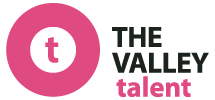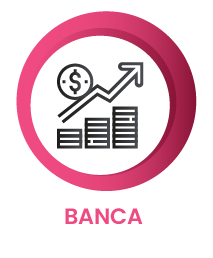The “C stands for “Chief” and refers to executive management positions in a company. The C-level is key in business transformations. Organizational change has to originate and be propelled from this level for everyone in the company to get involved and for the transformation to be complete and universal. That’s why each and every one of the C-level profiles are fundamental.
PROFILES
Responsible for developing the company’s commercial strategy with the objective of achieving the sales objective. Has the capacity to redefine or design new digital sales channels.
SKILLS
- Excellent communication skills
- Knowledge of all sales channels
- Leadership skills and great negotiation skills
Responsible for developing and implementing the digital strategy and vision across the board throughout the organisation. Has knowledge of both technology and business strategy and promotes the organisation’s internal and external relationships while capturing the best talent.
SKILLS
- Innovation capacity
- Diplomatic when it comes to conflict resolution between departments
- Knowledge in user experience (UX)
Responsible for corporate reputation and the development of branding strategies. Promotes relationships with stakeholders and has the capacity to advise the organisation’s CEO.
SKILLS
- Excellent communication skills
- Design effective communication plans
- Foster relationship with interest groups
With the end goal of having the capacity to take good decisions in real time by using data, this profile is involved in the advanced analytical decisions that affect the business.
SKILLS
- Data Experience
- Business vision
- Team management
The great driver of digital transformation. The person from whom cultural and organizational change is born through transparent leadership.
SKILLS
- Ability to generate creative ideas
- Good communication skills
- Command of crisis management strategies
- Extensive knowledge of the market and its trends
Responsible for making key decisions regarding investment and the financing of companies. Furthermore, this position is in charge of financial management and analysis within organisations, with the ability to manage human talent.
SKILLS
- Extensive knowledge of accounting
- Budget control
- Analytical view of the profitability of investments
Responsible for leading human capital management; anticipating employee needs and designing strategies to capture the best talent and build loyalty. Both business objectives and analytics come into play when drawing up the strategy. This position works hand in hand with the CEO and CFO.
SKILLS
- Analytical skills
- Strategic vision
- Digital trends
Responsible for making technology indispensable when it comes to operational efficiency. It’s up to the CIO to implement the technology that generates opportunities for business growth which are driven by innovation.
SKILLS
- Strategic vision
- Up to date with technological trends
In charge of driving disruptive action to offer better results when it comes to services, business models, channels…etc. The CIO leads the development and incubation of innovation through their teams or startups; analyses what benefits the company can get from new technologies and screens them to see which ones are of interest before analysing their operation.
SKILLS
- Extensive knowledge of technology
- Leadership skills
- Capacity for continuous innovation
- Group management skills
Responsible for implementing information security in the company in accordance with the business objectives, ensuring that the company is protected at all times.
SKILLS
- Team management
- Crisis management
- Knowledge of security architecture
A marketing professional with broad experience and strategic vision. Using a multi-channel, customer-centric approach, a CMO makes use of solutions from the IT world and zeroes in on exact customer needs through data analysis.
SKILLS
- Ability to generate creative ideas
- Statistical knowledge
- Highly proficient in using digital marketing tools
Using greater technology, a COO redesigns the value chain to improve competitive advantage; and support personalisation, brand consistency and services at an omnichannel level. Key responsibilities are supervising the daily activity of the company and optimizing the processes.
SKILLS
- “Big-picture” analytical skills
- Good leader
- Strong communication skills
- Negotiation skills
Leader and key player in the design of the business strategy with the responsibility of seeing its execution through. A creative thinker and influential collaborator; with a thorough understanding of the market, industry and the economy to be able to provide key information.
SKILLS
- Extensive market knowledge
- Leadership
- Strategic and planning vision
A strategic enabler who strives to improve the internal and external customer experience through new technological models that provide improvements at all levels of the company. The CTO is the technician in charge of the development and proper functioning of IT systems from the execution point of view.
SKILLS
- Extensive knowledge of technology
- Good communication skills
- Project management skills
- Knowledge of customer characteristics
In charge of customer experience, a CXO designs and defines the customer journey and interaction with each and every product or service the company offers in all its channels. The main objective is to improve user experience, whether internal or external, when interacting with the company.
SKILLS
- Knowledge of marketing and operations
- Experience in implementing customer culture
- Leadership skills
- Ability to develop effective strategies






